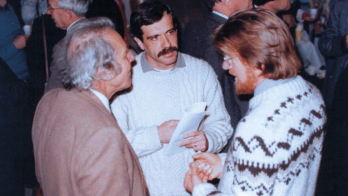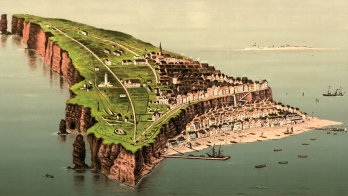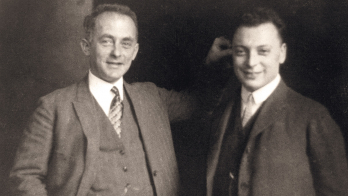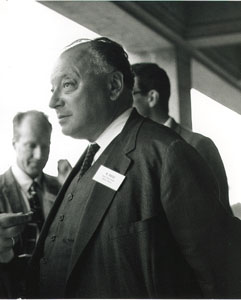

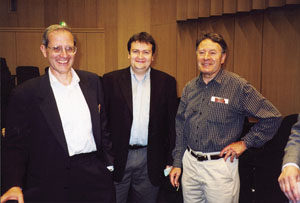
Wolfgang Pauli, the “conscience of physics” was born in Vienna on 25 April 1900. Among the events organized to celebrate the Pauli centenary was a series of public lectures, Wolfgang Pauli and Modern Physics, at the ETH (Swiss Federal Technical High School) Zurich, where Pauli spent his career from 1928 until his death in 1958, except for an interval during the Second World War. The Zurich lectures focused on Pauli’s life and work, and his scientific legacy, with a distinguished list of speakers. A Pauli exhibition, currently in Zurich, will be moved to CERN later this year.*
Pauli discovered many of the 20th century’s major new directions for modern physics and went on to lay the foundations for much of what was to come – quantum mechanics, the Exclusion Principle, electron spin, quantum field theory, the neutrino hypothesis, spin and statistics, among others.
Contemporary physics is, of course, his greatest monument, but another is his prolific correspondence with contemporary scientists. CERN has become the home of this carefully accumulated and maintained Pauli archive, the source for a four-volume series of scientific correspondence, published by Springer.
One of Pauli’s last major public appearances was at the 8th International (“Rochester”) Conference on High Energy Physics, hosted by CERN in Geneva on 30 June – 5 July 1958. This was the first time that this meeting had been held outside the US. As chairman of the Fundamental Ideas session, Pauli began:
“This session is called ‘fundamental ideas’ in field theory, but you will soon find out, or have already found out, that there are no new fundamental ideas. So what you shall hear are substitutes for fundamental ideas, and it works in the same way as I am the substitute for a rapporteur. So you will also see that there are two kinds of ignorance – rigorous ignorance and more clumsy ignorance. You will also hear that many speakers will want to form new credits for the future. I am personally not very willing to give such credits but it is for everybody to choose what he wants to do in this respect.”
The first three talks in the session were by Hideki Yukawa, Werner Heisenberg and Pauli. Immediately after Heisenberg’s talk, “Non-linear spinor theory with indefinite metric”, Pauli said sternly: “Regarding the papers of Heisenberg and collaborators on the spinor model…I reached the conclusion that they are mathematically objectionable.”
Heisenberg persisted, but Pauli eventually retorted again: “I completely disagree with the answer of Heisenberg _ not only unnatural but mathematically impossible.”
Heisenberg countered: “Of course I again disagree completely with what Pauli said…”
After the young Murray Gell-Mann (aged 28) tried to establish some calm and order between the warring quantum veterans, Heisenberg commented: “I agree completely with what Gell-Mann just said. But at the same time I propose to postpone the discussion for half a year and then we will know more.”
The ever-implacable Pauli concluded: “I think that is superfluous. In half a year the answer will be the same as Gell-Mann gave just now.”
Half a year later, Pauli was dead, but his name will live for ever.
Pauli polemics
Pauli became legendary not only for his physics but also for his vituperation and invective. Some examples:
At a seminar given by a young researcher: “Your first equation is already wrong, and your second does not follow from it”;
Of a young physicist, Pauli retorted: “What, so young and already unknown?”
The Vienna-born Pauli asked another physicist: “When did you leave Vienna?” “1938,” he replied. “I left in 1918,” retorted Pauli. “My intuition was always good.”
The festschift Das Gewissen der Physik(the Conscience of Physics), edited by Charles Enz and Karl von Meyenn, from a 1983 meeting in Vienna to mark the 25th anniversary of Pauli’s death, contains among a wealth of contributions a memorable collection of such anecdotes, compiled by Val Telegdi.
*The Pauli exhibition will be in CERN’s Main Building from 17 August until 26 September, and a ceremony will take place in the Council Chamber on Monday 11 September, beginning at 4.30 pm. This will include short presentations from Maurice Jacob (chairman of the Pauli Committee), Konrad Osterwalder (Rektor of the ETH Zurich), Luciano Maiani (director-general of CERN) and Charles Enz (University of Geneva) on Pauli’s life and legacy.






